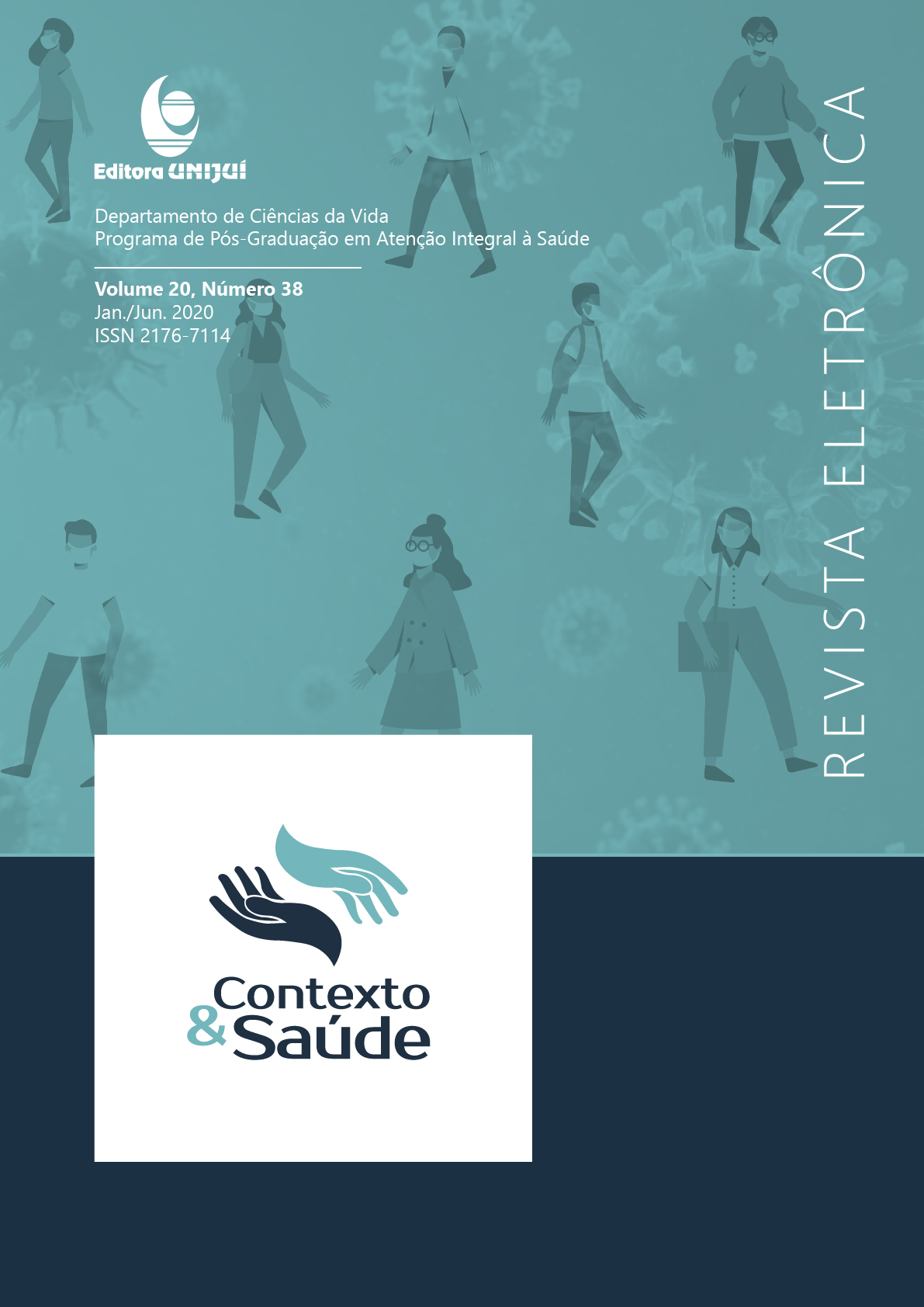THE TEACHING OF CRIMINAL LAW IN LEGAL COURSES: THE NEED FOR HUMANIST TRAINING AND RESPONSIBLE CRITICAL CONSCIOUSNES
DOI:
https://doi.org/10.21527/2176-7114.2020.38.78-85Keywords:
Depression; Antidepressants; Use of medicines; Public health.Abstract
The objective was to analyze the profile of antidepressant use and presence of depressive symptoms among users of a municipal pharmacy. This is a cross-sectional and quantitative study carried out with users of antidepressants in a public pharmacy in a city in the northwest of Rio Grande do Sul. Data collection was performed using a semi-structures questionnaire on sociodemographic characteristics and health conditions and application of Beck Depression Inventory. 84 users of antidepressants participated in the study, with a mean age of 55.23 ± 13.57 years. Among users, 60.7% had no symptoms or minimal symptoms, 22.6% mild depression, 15.5% moderate depression and 1.2% severe depression. Among the sociodemographic characteristics, most were women (73.8%), married marital status or stable union (67.8%), with incomplete elementary schooling (54.8%) and lived in the countryside (66.7%). Fluoxetine (24.5%) was the most used medication and the time of use of antidepressants had a median of 3 years. No statistical differences were identified between the presence of depressive symptoms and sociodemographic characteristics and health conditions. It is evident that the profile of users of antidepressants is similar to national characteristics, and over half of users were without symptoms or minimal symptoms. In this context, the pharmaceutical professional has a fundamental role in the care process, from guiding the patient on pharmacotherapy, identifying possible prescription errors, promoting rational use and adherence, as well as encouraging non-drug therapies.
Downloads
Published
How to Cite
Issue
Section
License
By publishing in Revista Contexto & Saúde, authors agree to the following terms:
The works are licensed under the Creative Commons Atribuição 4.0 Internacional (CC BY 4.0) license, which allows:
Share — to copy and redistribute the material in any medium or format;
Adapt — to remix, transform, and build upon the material for any purpose, including commercial.
These permissions are irrevocable, provided that the following terms are respected:
Attribution — authors must be properly credited, with a link to the license and indication of any changes made.
No additional restrictions — no legal or technological measures may be applied that restrict the use permitted by the license.
Notes:
The license does not apply to elements in the public domain or covered by legal exceptions.
The license does not grant all rights necessary for specific uses (e.g., image rights, privacy, or moral rights).
The journal is not responsible for opinions expressed in the articles, which are the sole responsibility of the authors. The Editor, with the support of the Editorial Board, reserves the right to suggest or request modifications when necessary.
Only original scientific articles presenting research results of interest that have not been published or simultaneously submitted to another journal with the same objective will be accepted.
Mentions of trademarks or specific products are intended solely for identification purposes, without any promotional association by the authors or the journal.
License Agreement (for articles published from September 2025): Authors retain copyright over their article and grant Revista Contexto & Saúde the right of first publication.

